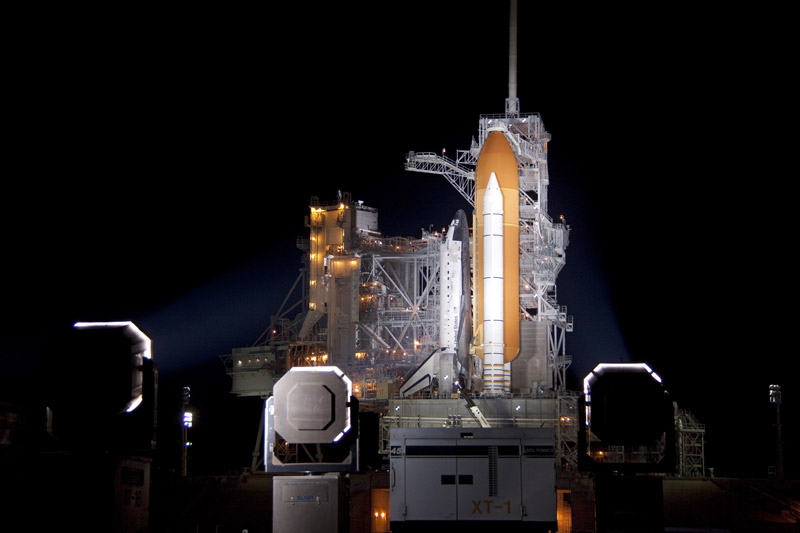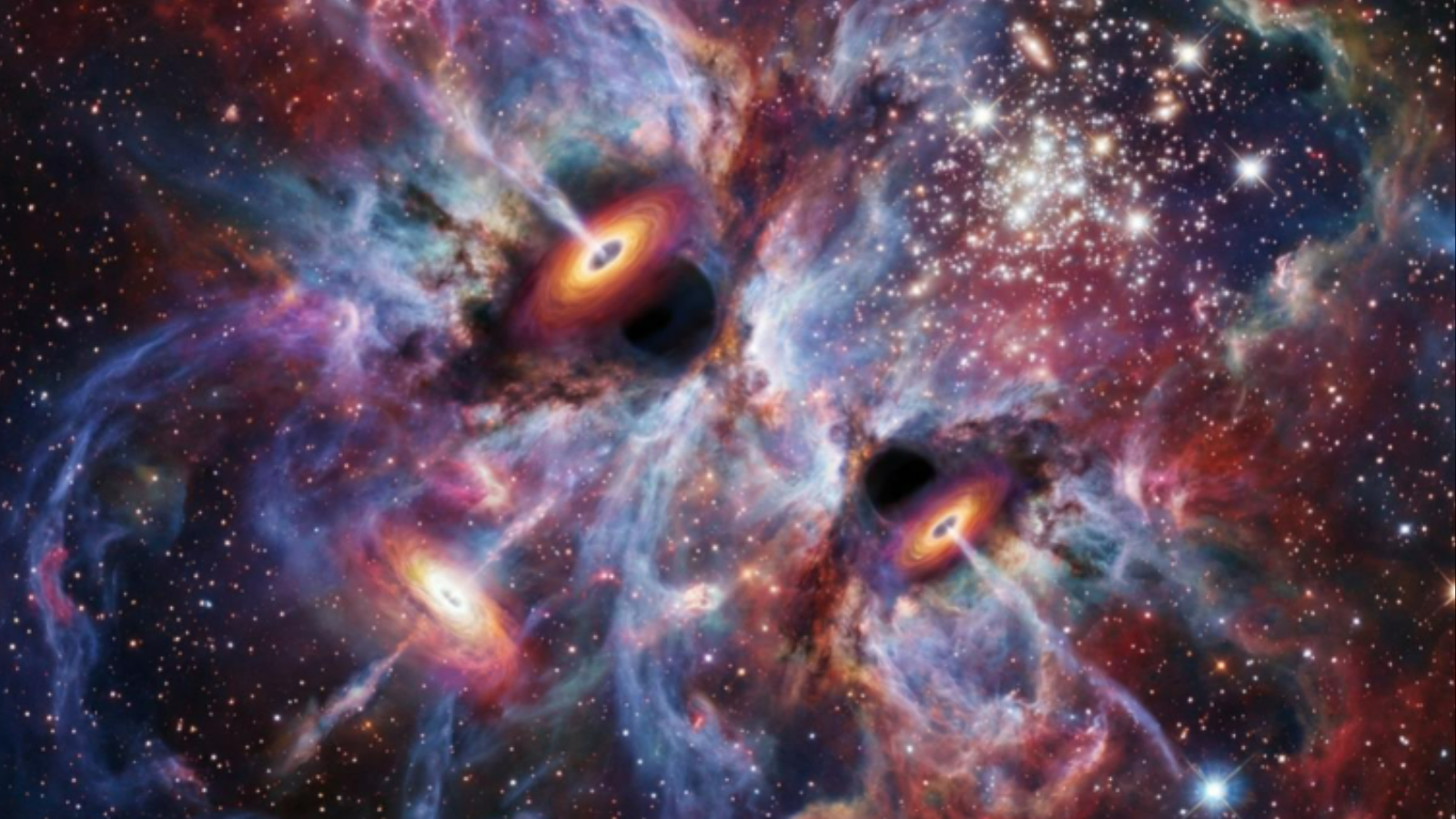NASA Begins Fueling Space Shuttle Discovery For Final Mission

This storyhas been updated at 6:12 a.m. EDT.
CAPE CANAVERAL, Fla. ? NASA technicians have begun fillingthe space shuttle Discovery's enormous external fuel tank in preparation forher final launch later today.
The roughly three-hour long fueling process, called tanking,began at 5:58 a.m. EDT (0958 GMT). It involves filling the tank with more than 500,000 gallons of liquid oxygen and liquid hydrogen. This fuel will power Discovery's three main engines during liftoff and ascent into orbit.
After nearly a week of delays, NASA is readying Discoveryfor the flight that will cap her storied 26-year spaceflying career. Discovery,NASA'soldest space shuttle still flying, is poised to launch today (Nov. 5) at3:04 p.m. EDT (1904 GMT) from the seaside Launch Pad 39A here at NASA's KennedySpace Center.
The mission has been delayedsince Monday (Nov. 1) due to minor last-minute hiccups and stormy weatherthat drenched the Florida spaceport yesterday.
Current weather forecasts, however, show a significantimprovement for today's launch. Estimates are projecting a 60 percent chance ofacceptable conditions, with the main concern being high winds in the area.
Top mission managers will meet today at 5 a.m. EDT(0900 GMT) to reassess the weather situation.
Breaking space news, the latest updates on rocket launches, skywatching events and more!
With NASA's shuttle fleet set to retire next year, today'slaunch attempt will be the beginning of the end for Discovery. The shuttle ismaking its 39th and final spaceflight with this launch, and will be the firstof NASA's remaining three shuttles to be retired. [GRAPHIC:NASA's Space Shuttle ? From Top to Bottom]
Discovery will fly an 11-day supply mission to theInternational Space Station to deliver a humanoid robot helper for the stationcrew and a new storage room for the orbiting lab. The intrepid orbiter and herbehind-the-scenes engineering team have already faced down a series ofsetbacks, including a pair of gas leaks, an electrical glitch and, mostrecently, uncooperative weather.
If bad weather prevents Discovery's launch again today, NASAcould try again on Saturday. The space agency has until Sunday, Nov. 7 ? andpossibly Monday ? to fly Discovery before its current launch window closes.
The shuttle's final six-astronautSTS-133 crew is a veteran team made up of commander Steve Lindsey, pilotEric Boe, and mission specialists Alvin Drew, Tim Kopra, Michael Barratt andNicole Stott.
Discovery's 11-day mission will include two spacewalks,during which mission specialists Drew and Kopra will perform maintenance taskson the exterior of the station.
Discovery's STS-133 mission will be the orbiter's finale inspace beforebeing retired along with the rest of NASA's shuttle fleet in 2011.
"It's a remarkable team that gets her ready tofly," Payne said about the many people behind Discovery's final voyage."They put their heart and soul into this one. They know it's her lastflight. She's now poised to take to the skies, and when she goes, she's goingto take a little bit of every one of us with her."
- GRAPHIC: NASA's Space Shuttle ? From Top to Bottom
- Gallery: Building Space Shuttle Discovery
- Video ? Space Shuttle Discovery: A Retrospective, Part 2, Part 3
Follow SPACE.com Staff Writer Denise Chow onTwitter @denisechow asshe covers Discovery's final space voyage from Cape Canaveral, Fla. Click here formission updates, new stories and a link to NASA's live webcast coverage.

Denise Chow is a former Space.com staff writer who then worked as assistant managing editor at Live Science before moving to NBC News as a science reporter, where she focuses on general science and climate change. She spent two years with Space.com, writing about rocket launches and covering NASA's final three space shuttle missions, before joining the Live Science team in 2013. A Canadian transplant, Denise has a bachelor's degree from the University of Toronto, and a master's degree in journalism from New York University. At NBC News, Denise covers general science and climate change.
